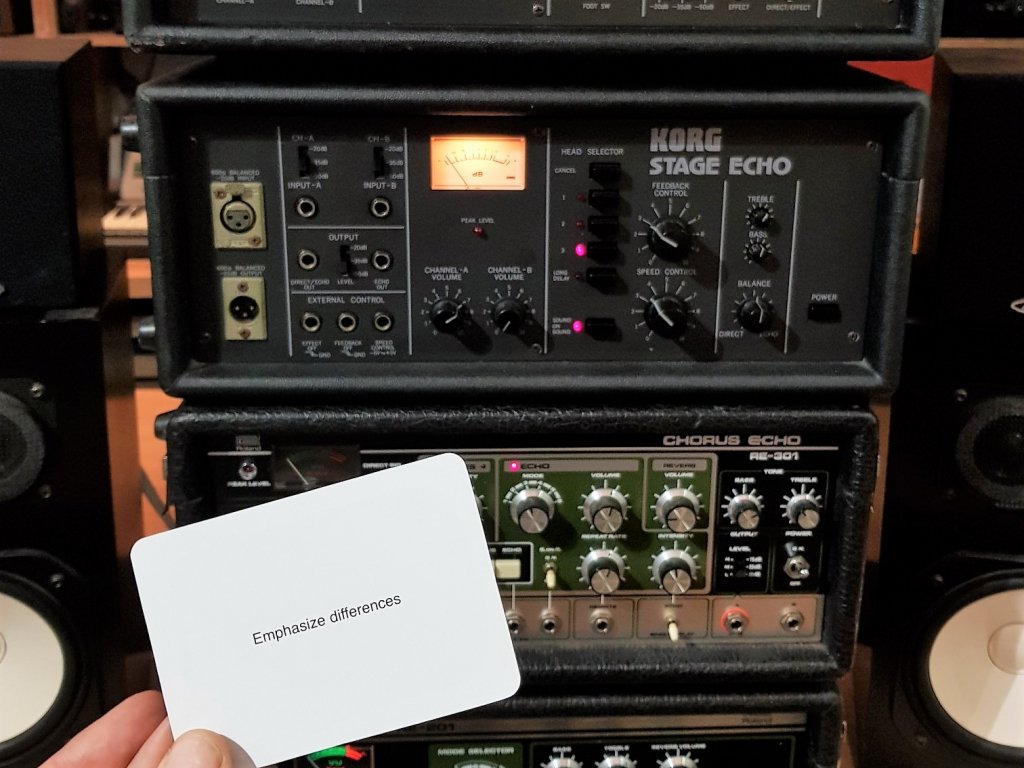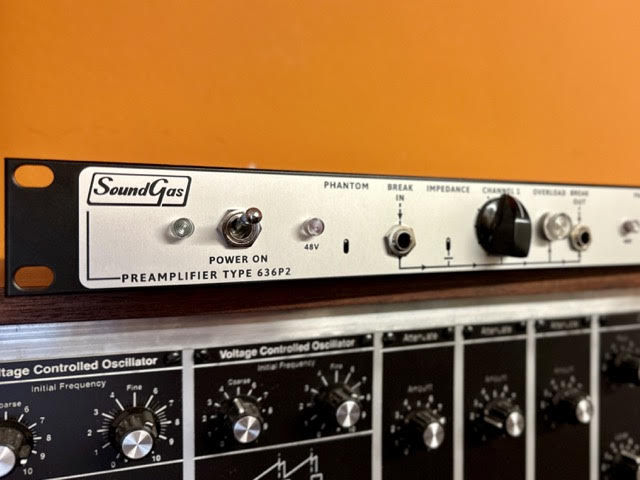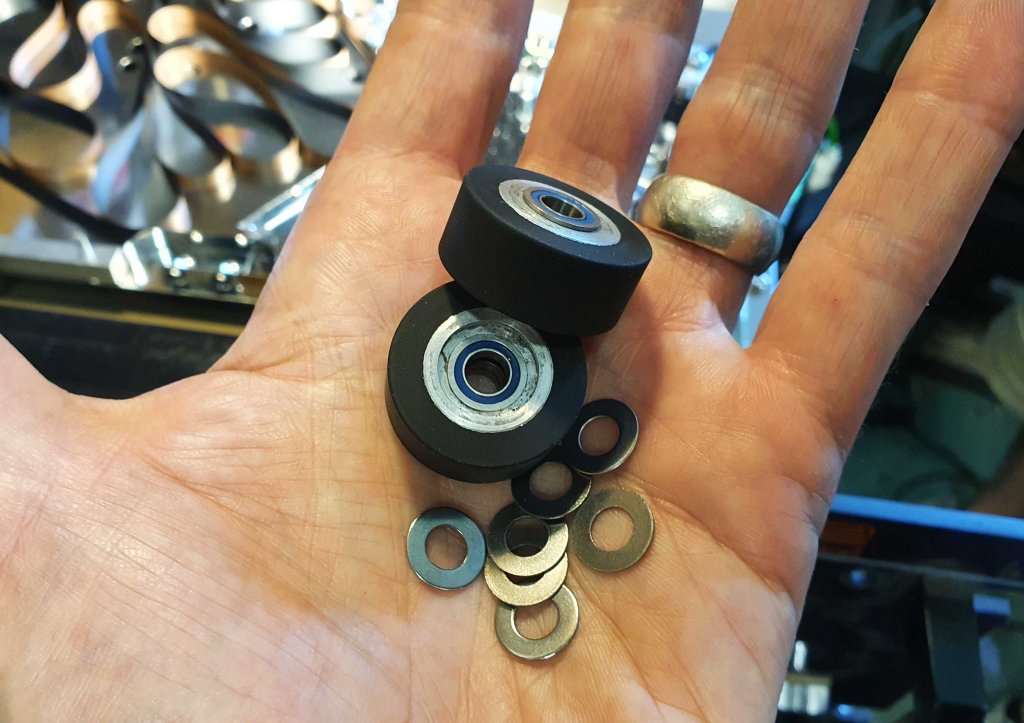
Korg Stage Echo or Roland Space Echo?
Why choose a Stage Echo over a Space Echo, and what are the main differences between the Korg and Roland machines? Below we list a few considerations that may point towards which machine might be most suitable for you.
This page covers both Roland and Korg machines – it follows on from our introduction to Korg Stage Echoes and also our Roland echo pages. It will help you decide between which Roland or Korg tape delay model will be best for you. Note that this page is a work in progress and needs more video; if you are looking to buy a vintage tape echo and want to discuss which is best for you then get in touch.
Do you want a classic delay/reverb that’s been heard on countless recordings since the early seventies?
If yes, you (fairly obviously) most likely want a Roland RE-201 Space Echo, or, if your budget is tighter and you can live without the spring reverb, the RE-101. The RE-150 has no spring reverb and only two replay heads (as opposed to the 201/101’s three), but they have a great sound and are also a good option to get the Roland Space Echo sound on a tighter budget.
If you want a classic delay/reverb, but also can make use of a good chorus circuit, and the additional creative possibilities of sound on sound (but are not looking for classic dub delay patterns), then the Roland RE-301 could be for you. The head spacings are different on the 301 (compared to to the 201), so while dub aficionados may find it less-gratifying, guitarists and keyboard players love the less-common 301. Tony’s 301 (pictured above)came from Dave Formula of Magazine: it was used on several of their albums (and on the Visage albums) – you can see it behind Dave on the cover of Magazine’s live album, ‘Play’.
Are you looking for a cleaner, more high fidelity sound to your repeats? If you are, then the choice is between the Korg Stage Echoes or a Roland RE-501 Chorus Echo (or SRE-555 which is simply a 501 in rack format). The later Rolands incorporated a noise reduction system (as well as an updated chorus, improved sound on sound and of course spring reverb) which made them sound a good deal cleaner. We’ve always thought of them as being the Roland Echo to buy if you like the sound of the late seventies or early eighties (a strat through an RE-501 gets you pretty close to the sound of Andy Summers of The Police or David Gilmour on Pink Floyd’s The Wall). For many years Tony used two very clean 501s in his studio as his main go-to guitar/synth echoes, partially because they worked faultlessly, but also because they seemed to just sound ‘right’ whenever we used them. But over time (and pre-dating Soundgas becoming a business) he grew more fond of RE-201s (and eventually sold his last 501 when he bought Dave’s 301); this is as much down to just how good they sound when they’re less worn and well serviced / set up. The Roland RE-501/SRE-555 and the Korg SE-500 also feature balanced inputs/outputs for studio use.
So… if you are after a cleaner sound (and chorus/spring reverb aren’t essential), and you also want longer delay times, and the ability to control the delay time via control voltage (CV) from your synth, modular system, or a control pedal, then the Korg SE-500 could be your machine. Also those Korg preamps are unique and can sound superb with some sources.
Or for that cleaner sound with built in spring reverb (but no sound on sound and the other tricks the SE-500 has), then you want to try an SE-300, which is my personal favourite of the two due to the flexible mixing options discussed earlier paired with those killer preamps.
That’s a very quick run through. Pair it with some of the other pages we’ve linked to and you will have at least some of the picture. Find out which machines were used on the records that most excite your ears and that may also help your decision. And of course there are some good demos to be had online (among the pretty average ones… we will be putting some links to ones we like up at some point). And finally, if you can get to a studio where they have more than one properly set up tape echo for you to try in person then jump on that chance! More to come…
Find out more about the Roland machines in our Introduction to Roland Tape Echoes.








